Immediately following a recent seminar at the East Africa Christian College in Rwanda (read about it here), Empower visited Byumba to conduct a training there. They were following up on a prior training there earlier this year. The following is a report from a new Empower partner, Faith Kabiru. She is a management consultant in Nairobi, Kenya who uses NMNW in her corporate consulting and a strong advocate for Empower. She traveled to Rwanda twice with Pastor Frank Tweheyo and Elizabeth Ndabi to lead NMNW programs.
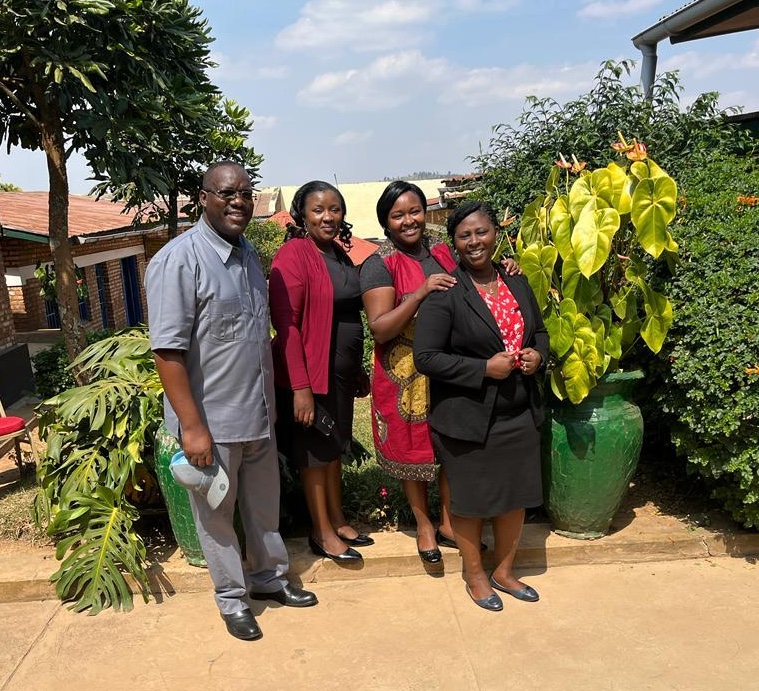
The Anglican Church, Diocese of Byumba is one of the Dioceses in the Anglican church of Rwanda (formally Eglise Episcopale au Rwanda – EER). It is a rural Diocese with a bigger percentage of the population living in the villages. It is led by Bishop Emanuel Ngendahayo. One of the unique characteristic of this community is that they are happy people and also great dancers.
The Rwanda team (Frank, Elizabeth, and Faith) returned to the diocese, and had intended to take the team through the master class training. By God’s design, the training was held at the same time as when the Bishop of Diocese of Byumba was getting married after having been widowed for seven years. We were excited that we would attend the wedding and at the same time conduct the level two training.
Bishop’s wedding
After completing the training in East African Christian College (see previous report here), we bought our wedding attire and got ready for the wedding which was taking place the following day.
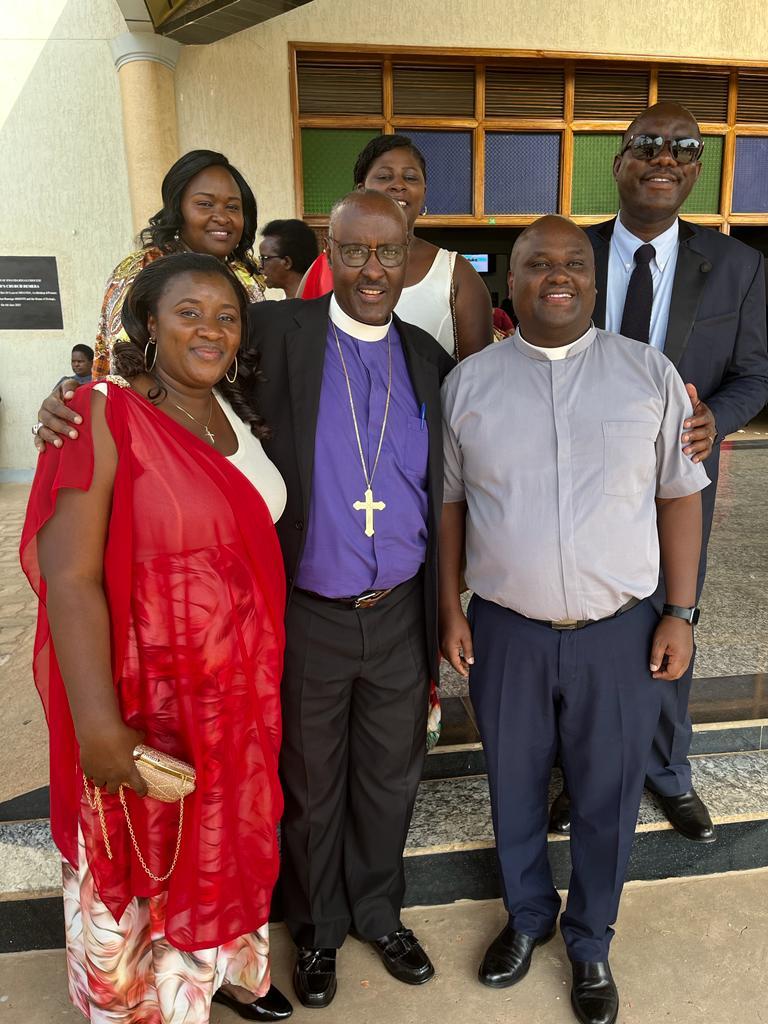

We joined the couple and the community of the Diocese of Byumba in this great celebration. We first joined in the church nuptials and later the wedding reception. We got an opportunity to give our gift and even a word of appreciation on behalf of Empower. We experienced and appreciated the Rwandan culture in a deeper manner which was expressed in their dressing, food, dances and even the speeches that were given during the wedding.
We were also able to connect with the family and community of Byumba in a deeper manner. By the time we were done with the wedding, we were feeling Rwandan. The joy in Bishop Emmanuel and his new wife Justine, and their children was unspeakable.
The next day, we traveled to Byumba, which is about one and a half hours away from Kigali. The place is cold but the reception was very warm.
We prepared for the training and we were all ready for the Master class. We had intended that the participants in level one would come in for level two but to our surprise, we received a new set of participants.
Out of 21 participants, only three had attended level one training. Of the new participants, we had lay readers, mothers’ union and fathers’ union leaders from across the Diocese. These are opinion leaders who have the power to change the mindset of the community. We were happy that these opinion leaders had the opportunity to know the truth because the truth could not only set them free but also set free the communities that they were coming from. One of the participant was newlywed and even thought it was a seminar for newlyweds.
This destabilized us, but only briefly, because we were prepared for master class training. We were mentally prepared and even the materials we had carried were that of the master class training. However, the joy in the faces of the participants, the anticipation in their eyes stirred our hopes. We quickly organized for materials for level one training and began.
Though the three had gone through the New Man, New Woman, New life training previously, they still chose to go through it again. One of them became our interpreter, which gave him great joy and confidence.
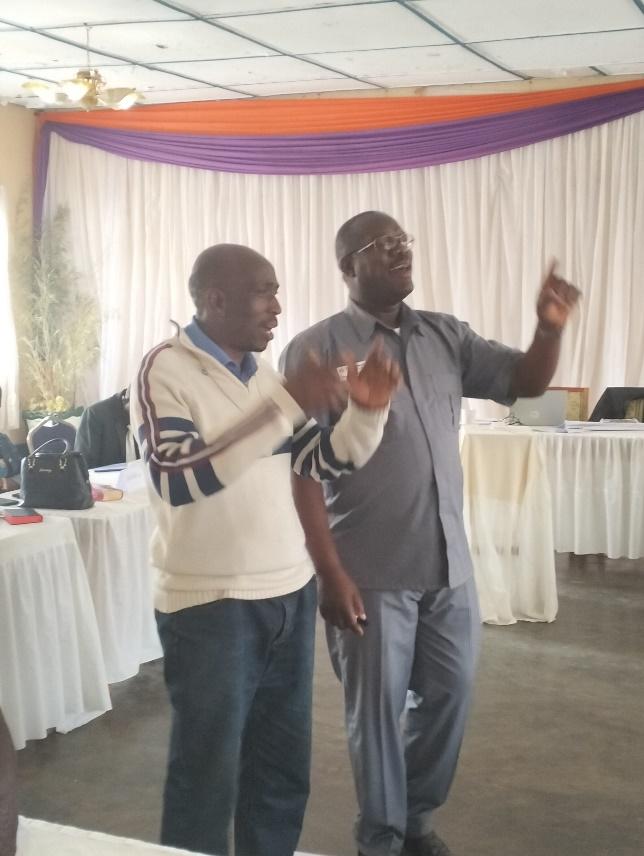
Dismantling misinterpretations
As we began our interaction with the team, we noted that about 80 percent of the participants believed that:
- Man was created first
- Man and woman were cursed
- Man was king and woman was a subject
With this perspective, it was interesting to see the bible exploration begin. As we began the first part of our training – the creation ideal, the reactions were interesting. Below were some of the participants’ thoughts and observations.
- Some participants thought there was a typo error in the bible.
- Some thought there was subject/verb disagreement.
- Others argued that there was misinterpretation during bible translation.
- Some participants listened to others read the bible aloud and wanted to confirm from their translation. As they read from their own bibles, some just sat down quietly without a word upon realization that it was the same as the one that was read aloud.
As we continued with the studies, we were happy to see the participants begin to see things differently.
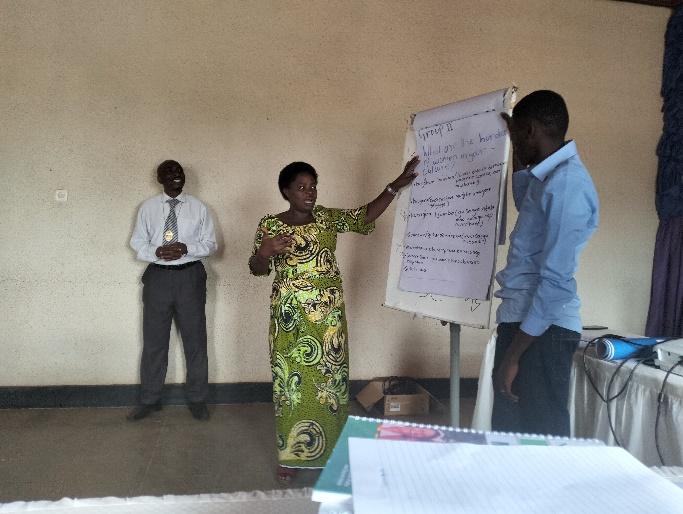
Through the participants’ engagement, we understood the positive and negative influence of culture in bible interpretation. We were happy to also note that after the studies, they could tell what was happening in their own community and how the word of God could liberate them.
Thoughts and lives transformed
Here are some of the observations by the participants.
“After listening to these studies, I realize that in the Rwandan culture we deceive ourselves by taking a helper as someone simple. This is because we are coming from a culture where the man was the king and women were workers. Even as we read the bible today, some of us still look at women from this perspective and not as God intended them to be. Some people in our community still look at the man as a mason who hires and fires workers (women) at will, and who adds and subtracts workers at will. This could explain polygamy, separation, divorces and abandonment of women by men in our community.”
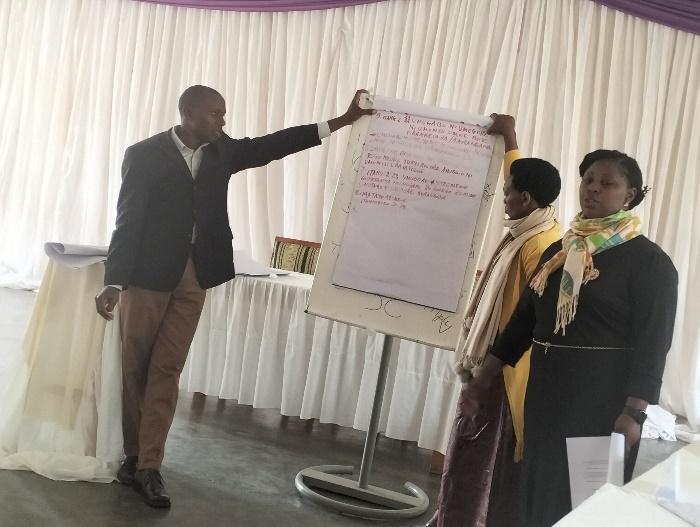
Another participant said, “No wonder when the government brought the issue of gender balance in the community, men did not take it kindly. The understanding by men was that the government wanted the women to take up the place of men. But after reading Genesis 1 and 2, I now understand clearly that women are not to take the place of men, but that men and women were created in the image and likeness of God and that they are equal in the eyes of God. I also now realize that if women were given equal chances in community engagement, decision making and employment, families, communities and even the nation would be better economically.”
Another observation by the participants was that though there is negative influence in bible interpretation, the Rwandan culture also recognized women as key people in the community and this can be seen in proverbs. Some of the proverbs are:
- “Cows and other forms of inheritance come from parents but a wife of noble character comes from God.”
- “The woman is the heart of the family.”
- “If you have a good wife, you are better because your family will be better.”
Participants observed that most of the burdens on men and women are actually responsibilities which would be well managed if individuals and communities recognized the ideal worth of men and women and the joy of being united and working together.
After the training, the remarks from the participants were empowering. One participant said, “I am happy that I came for this training because as a newlywed, I am a better man and will now look at my wife from the biblical perspective and not from a cultural perspective.”
A powerful testimony
As we came to the end of the training, Dr. Frank shared his experience of waiting 22 years in marriage before they could have a child and how learning that children are a blessing not a command made the last 10 years of his waiting easier. The whole class was emotional. Ladies were crying and men had their countenance down.
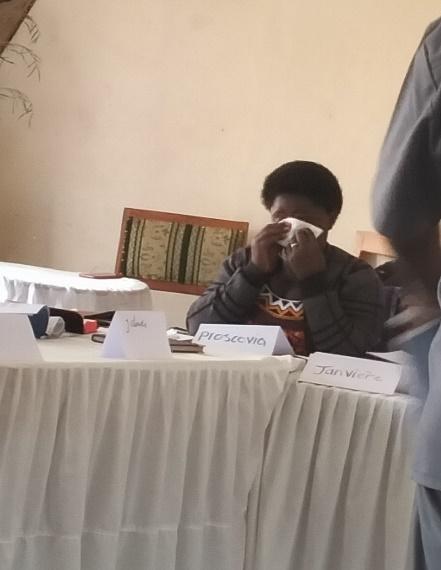
The issue of childlessness in Africa is very emotive because of the cultural influence and interpretation. The woman is blamed and even considered cursed. Hearing this testimony from Frank meant a lot to them in their context.
Two participants shared the impact of this testimony in tears.
One lady who is a lay reader shared her experience during one of the pastoral visits where she encountered a neglected child and how she took up the initiative of cleaning the boy and making sure that he was comfortable. She was in tears as she observed that some people have been blessed with children but do not recognize children as blessings and end up neglecting them.
Another lady shared in tears how her sister has not had a child for 29 years and after hearing this testimony, she felt that finally she had an encouraging message for the sister.
We were excited as trainers walking with the participants through training and seeing the change in perspective and the work of the Holy Spirit taking place in their hearts. It was astounding to see how liberating truth is. Participants who began from a point of cultural perspective and prior learning engaged with the bible texts in their own language and in their own culture, and as a result, came to appreciate the word of God in its authentic state.
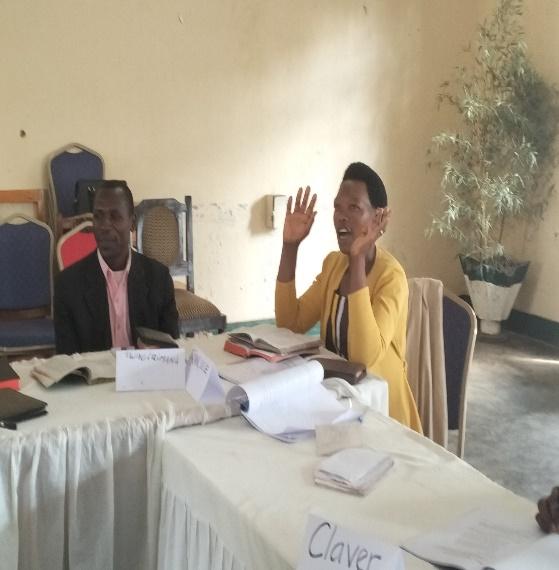
The most beautiful thing was to see the participants get insights from their own interrogation of the bible and in their own context. One of the participants said he will be reading the bible for himself and interrogating it deeper and not just listening as the word is preached or reading from the cultural lens.
